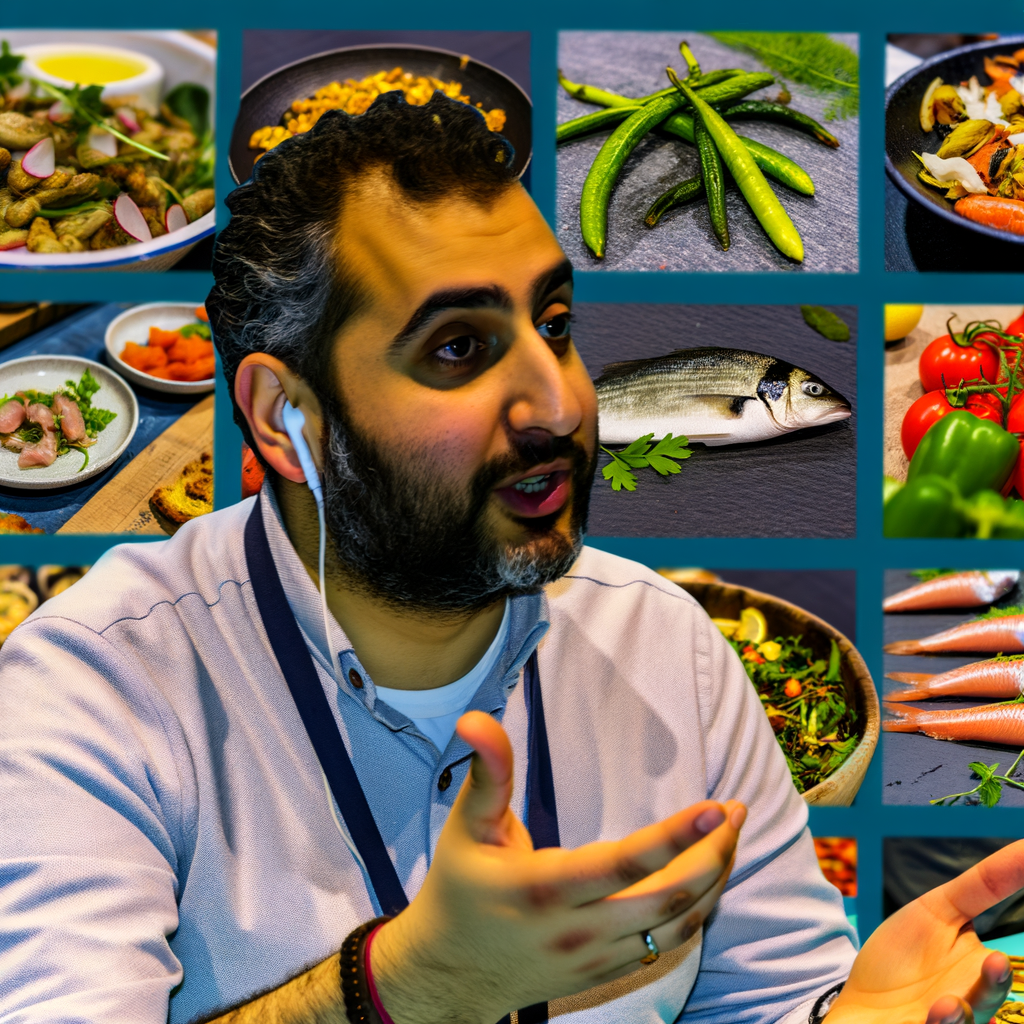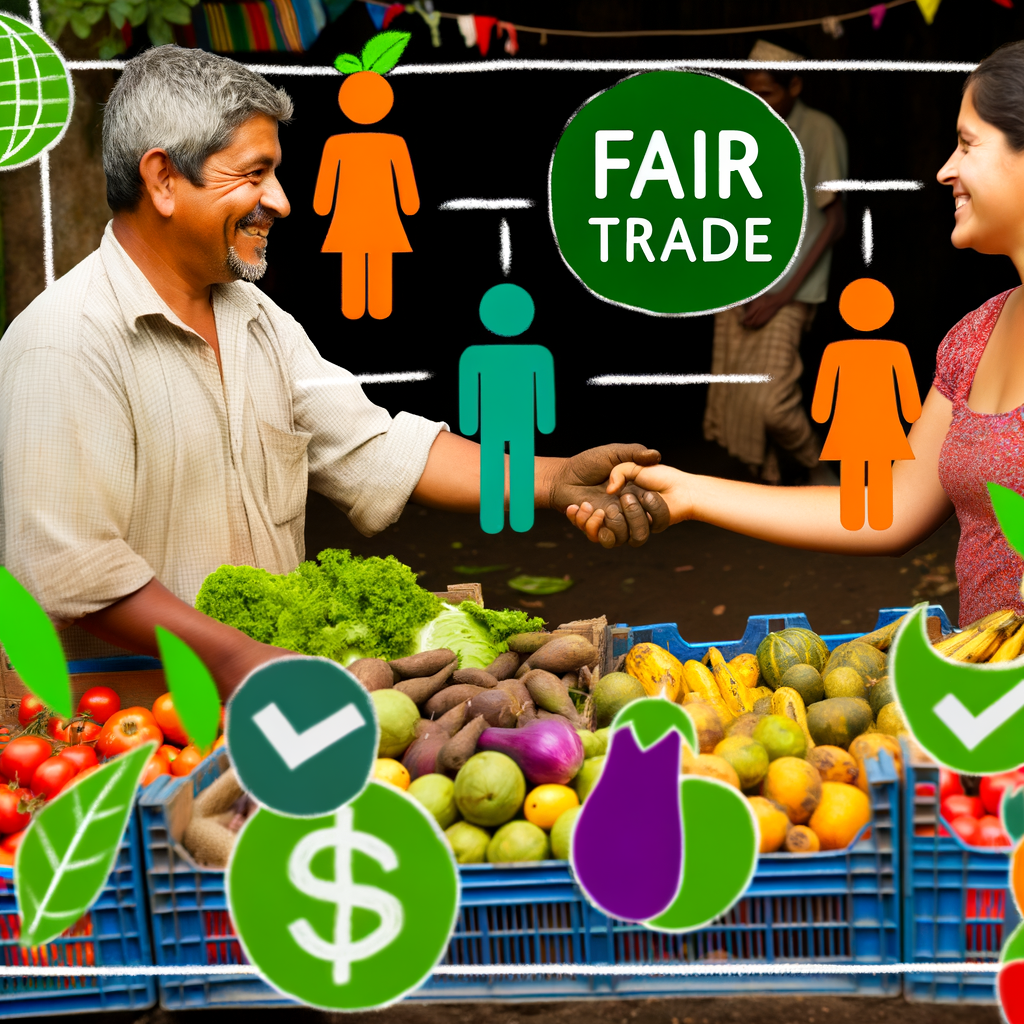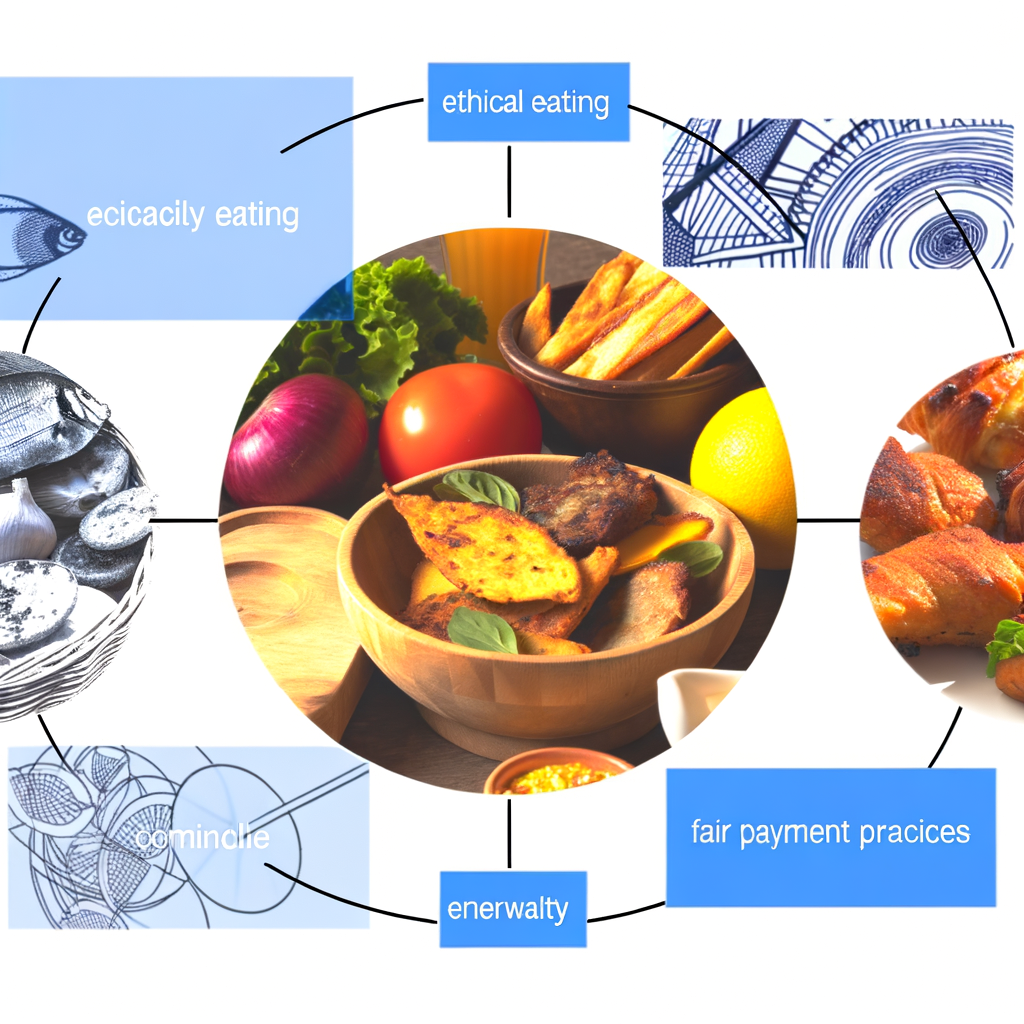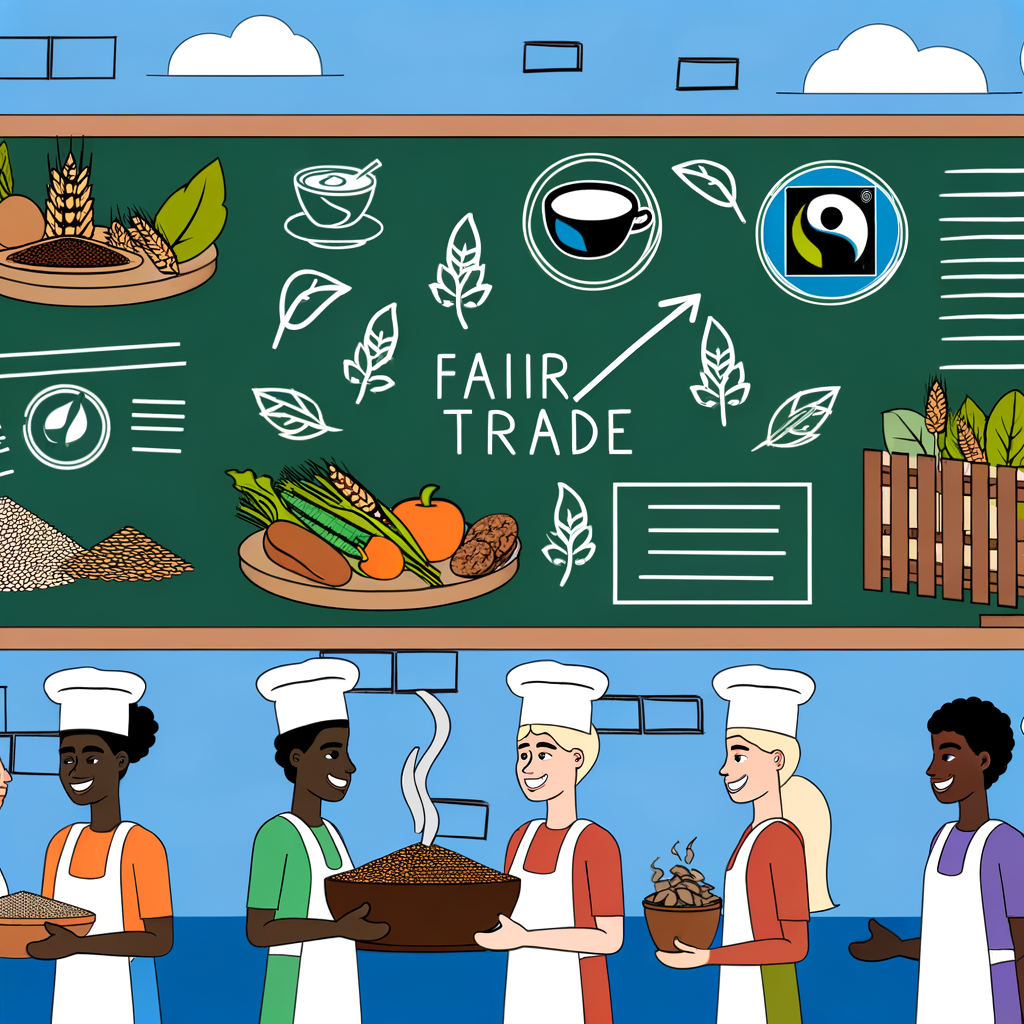British cuisine has long been associated with traditional dishes like fish and chips, bangers and mash, and shepherd’s pie. However, in recent years, there has been a shift towards more modern and diverse food culture in the UK. As a food critic, I have had the pleasure of exploring this evolution in British cuisine, and one aspect that stands out to me is the emphasis on ethical eating, particularly through fair trade practices.
Fair trade is a movement that aims to promote sustainable and ethical production and consumption of goods. In the food industry, it focuses on ensuring that farmers and producers in developing countries are paid fair wages for their products. This not only promotes social justice, but it also encourages environmentally-friendly practices.
In British cuisine, fair trade has become increasingly important in recent years. Local markets, restaurants, and chefs are now prioritizing fair trade ingredients in their dishes. This not only supports farmers in developing countries, but it also allows for a more diverse and vibrant food culture in the UK.
As an expert chef, I have also seen the positive impact of fair trade on British gastronomy. By using fair trade ingredients, we are able to create unique and delicious dishes while also promoting sustainable and ethical practices. It is our responsibility as chefs to not only create delicious food, but also to support fair and ethical practices in the food industry.
In conclusion, ethical eating through fair trade is a crucial aspect of modern British cuisine. By embracing this movement, we are not only promoting social and environmental justice, but we are also enriching the food culture in the UK. Let us continue to prioritize fair trade in our dining experiences, and pass on this important value to future generations.





